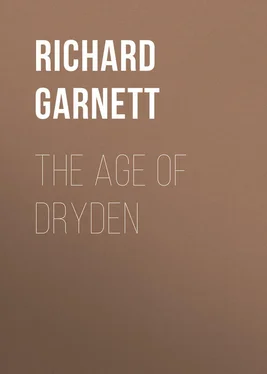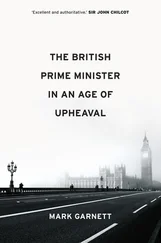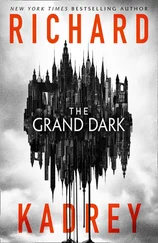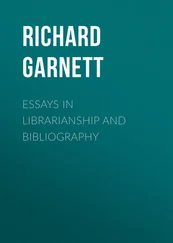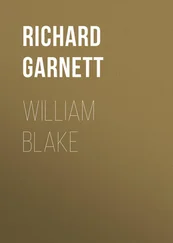Richard Garnett - The Age of Dryden
Здесь есть возможность читать онлайн «Richard Garnett - The Age of Dryden» — ознакомительный отрывок электронной книги совершенно бесплатно, а после прочтения отрывка купить полную версию. В некоторых случаях можно слушать аудио, скачать через торрент в формате fb2 и присутствует краткое содержание. Жанр: foreign_antique, foreign_prose, на английском языке. Описание произведения, (предисловие) а так же отзывы посетителей доступны на портале библиотеки ЛибКат.
- Название:The Age of Dryden
- Автор:
- Жанр:
- Год:неизвестен
- ISBN:нет данных
- Рейтинг книги:4 / 5. Голосов: 1
-
Избранное:Добавить в избранное
- Отзывы:
-
Ваша оценка:
- 80
- 1
- 2
- 3
- 4
- 5
The Age of Dryden: краткое содержание, описание и аннотация
Предлагаем к чтению аннотацию, описание, краткое содержание или предисловие (зависит от того, что написал сам автор книги «The Age of Dryden»). Если вы не нашли необходимую информацию о книге — напишите в комментариях, мы постараемся отыскать её.
The Age of Dryden — читать онлайн ознакомительный отрывок
Ниже представлен текст книги, разбитый по страницам. Система сохранения места последней прочитанной страницы, позволяет с удобством читать онлайн бесплатно книгу «The Age of Dryden», без необходимости каждый раз заново искать на чём Вы остановились. Поставьте закладку, и сможете в любой момент перейти на страницу, на которой закончили чтение.
Интервал:
Закладка:
‘Then Old Age and Experience, hand in hand,
Lead him to Death, and make him understand,
After a search so painful and so long,
That all his life he has been in the wrong.’
Goldsmith’s ‘best-natured man, with the worst-natured muse,’ is purloined from Rochester, who is also the propounder of the paradox, ‘All men would be cowards if they durst.’ Some of his songs are not devoid of merit. After all, however, nothing of his is so well known as the anticipatory epitaph on Charles II., ascribed sometimes to him, sometimes to Buckingham, and very likely due to neither:
‘Here lies our mutton-eating king,
Whose word no man relies on;
Who never said a foolish thing,
And never did a wise one.’
Wentworth Dillon, Earl of Roscommon (1633? -1684), was a very different character, both as a man and as a poet. He is accused of no fault but a love of gaming, and the purity of his Muse merited the well-known eulogium:
‘In all Charles’s days
Roscommon only boasts unsullied bays.’
But he has nothing of the salt and savour of Rochester’s more serious poetry, and is at best an elegant versifier, who, in his only considerable original poem, the Essay on Translated Verse , thinks justly, reasons clearly, and expresses himself with considerable spirit when the subject requires. The most original feature of his literary character is his preference in a rhyming age for blank verse, which he enforces in theory, but is far from recommending by his practice. In his rhymed pieces he is a better versifier than poet, and in his blank verse the contrary. Milton’s eyes were just closed; Shakespeare and Fletcher were still acted; but the secret of beautiful versification, apart from rhyme, seems to have been entirely lost.
John Sheffield, Duke of Buckinghamshire (1649-1721).
Poetry afforded a subject for verse to another noble writer, John Sheffield, successively Earl of Mulgrave, Marquis of Normanby, and Duke of Buckinghamshire (1649-1721), who achieved real if moderate distinction as soldier, statesman, and scholar. As a poet his reputation rests entirely upon his Essay on Poetry , which contains many just thoughts expressed in pleasing numbers, although the author’s deference to the conventional dicta of criticism leads him into idolatry, not only of Homer and Virgil, but of Bossu. To have fostered the genius of Pope by judicious praise is the highest distinction of ‘Granville the polite and knowing Walsh.’ Congreve, to be treated more fully as a dramatist, stands somewhat higher than these as an inditer of heroic couplets; but a severer criticism must be passed, if any criticism is needed, upon Pomfret, Duke, Stepney, and the other versifiers of the day who have burrowed their way into the stock collections of poetry.
Andrew Marvell (1621-1678).
Andrew Marvell was a virtuous man whose good qualities contrast so forcibly with the characteristic failings of his age, that he appears by contrast even more virtuous than he actually was. His integrity made him the hero of legend, for, although the Court would no doubt have been glad to gain him, it is hardly credible that the prime minister should by the king’s order have personally waited upon him ‘up two pair of stairs in a little court in the Strand.’ But the apocryphal anecdote attests the real veneration inspired by his independence in a venal age. Born in the neighbourhood of Hull on March 31st, 1621, he studied at Cambridge, travelled for some years on the Continent, and settled down about 1650 as tutor to the daughter of Lord Fairfax. At this period he wrote his exquisite poem, The Garden , and other pieces of a similar character. He also wrote in 1650 the poem on Cromwell’s return from Ireland, which may have gained for him in 1653 the appointment of tutor to Cromwell’s ward, William Dutton. Other pieces of a like description followed, and in 1657 Marvell became joint Latin secretary with Milton, an office for which Milton had recommended him four years previously. His poem on the Protector’s death in the following year is justly declared by Mr. Firth to be ‘the only one distinguished by an accent of sincerity and personal affection.’ He was elected for Hull to Richard Cromwell’s Parliament, and continued to sit for the remainder of his life. He was the last Member of Parliament who received a salary from his constituents, to whose interests he in return attended so diligently that upwards of three hundred letters from him upon their concerns and general politics are extant in the Hull archives.
Marvell could scarcely be called a republican. He had been devoted to the Protectorate, and would probably have been easily reconciled to the Restoration if the government had been ably and honestly conducted. In wrath at the general maladministration he betook himself to satires, which circulated in manuscript. At first he attacked Clarendon, but eventually concluded that the only remedy would be the final expulsion of the house of Stuart. In 1672 and 1673 he appeared in print as a prose controversialist with The Rehearsal Transprosed , a witty attack on a work by Parker, Bishop of Oxford, wherein, in the author’s own words, ‘the mischiefs and inconveniences of toleration were represented, and all pretences pleaded in behalf of liberty of conscience fully answered.’ He silenced his opponent, and escaped being himself silenced through the interposition of Charles II., whose native good sense and easiness of temper inclined him to toleration, and who promoted the freedom of Nonconformists as a means of obtaining liberty for the Church of Rome. Marvell, however, was not to be reconciled, and in 1677 put forth an anonymous pamphlet to prove, what was but too true, that a design had long been on foot to establish absolute monarchy and subvert the Protestant religion. His sudden death on August 18th, 1678, was attributed to poison, but, according to a physician who wrote some years afterwards, was occasioned by that prejudice of the faculty against Peruvian bark which is recorded by Temple and Evelyn.
As a writer of prose, Marvell is both powerful and humorous, but is not a Junius or a Pascal to impart permanent interest to transitory themes, and make the topics of the day topics for all time. As a poet he ranks with those who have been said to be stars alike of evening and of morning. His earliest and most truly poetical compositions belong in spirit to the period of Charles I., when the strains of the Elizabethan lyric were yet lingering. After passing through a transition stage of manly verse still breathing a truly poetical spirit, but mainly concerned with public affairs, he settles down as a satirist endowed with all the vigour, but, at the same time, with all the prosaic hardness of the Restoration. His most inspired poem, Thoughts in a Garden , written under the Commonwealth, and originally composed in Latin, nevertheless rings like a voice from beyond the Civil Wars. Here are the three loveliest of nine lovely stanzas:
‘What wondrous life is this I lead!
Ripe apples drop about my head;
The luscious clusters of the vine
Upon my mouth do crush their wine;
The nectarine and curious peach
Into my hands themselves do reach;
Stumbling on melons as I pass,
Ensnared with flowers, I fall on grass.
‘Meanwhile the mind, from pleasure less,
Withdraws into its happiness;
The mind, that ocean where each kind
Does straight its own resemblance find;
Yet it creates, transcending these,
Far other worlds, and other seas;
Annihilating all that’s made
To a green thought in a green shade.
‘Here at the fountain’s sliding foot,
Or at some fruit-tree’s mossy root,
Casting the body’s vest aside
My soul into the boughs does glide:
There, like a bird, it sits and sings,
There whets and claps its silver wings,
And, till prepared for longer flight,
Waves in its plumes the various light.’
Интервал:
Закладка:
Похожие книги на «The Age of Dryden»
Представляем Вашему вниманию похожие книги на «The Age of Dryden» списком для выбора. Мы отобрали схожую по названию и смыслу литературу в надежде предоставить читателям больше вариантов отыскать новые, интересные, ещё непрочитанные произведения.
Обсуждение, отзывы о книге «The Age of Dryden» и просто собственные мнения читателей. Оставьте ваши комментарии, напишите, что Вы думаете о произведении, его смысле или главных героях. Укажите что конкретно понравилось, а что нет, и почему Вы так считаете.
